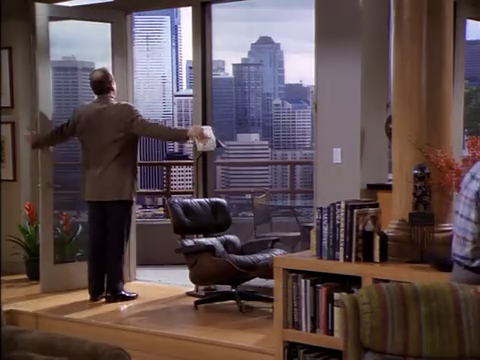Before I get to this week's post, have you seen my latest survey? I'd like to know whether you prefer the term "Quaker" or the term "Friend"—or maybe "it depends." The survey is here: blog.canyoubelieve.me/p/survey.html; please share it widely if you too are curious. Many thanks to everyone who has already responded. |
We are called to be patterns and examples in a 21st century campaign for peace and ecojustice, as difficult and decisive as the 18th and 19th century drive to abolish slavery.
— Kabarak Call for Peace and Eco-Justice, Sixth World Conference of Friends, Kenya, 2012.
This past Saturday, Sierra-Cascades Yearly Meeting of Friends met for its fall gathering at Eugene Friends Church. One of the items on our agenda was our participation in the Friends World Committee for Consultation's World Plenary Meeting in South Africa next August. Each yearly meeting may appoint one representative to participate in person. (In addition, there will be capacity for many Friends to participate online.) Whom would we send?
I followed the ensuing discussion carefully, not just because I was serving as one of the recording clerks, but also because similar discussions must be happening all over the world. Conscientious members of geographically widespread organizations have serious choices to make: weighing the decision to continue our patterns of carbon-fueled travel to conferences at a time when, as one Friend pointed out in our discussion, the pollution generated by air travel goes directly into the atmosphere. She added, bluntly, "Our planet's carbon budget is exhausted. There has to be a point where Friends say, 'We can't participate in this destruction anymore'."
She went on to add that we do have a choice. When we choose to make an environmentally costly trip by air, we can also commit to disciplines that compensate, such as a drastic limitation of other travel, or becoming vegetarian, or abandoning carbon-fueled vehicles in favor of walking, bicycling, or mass transit.
Much of the remaining discussion centered on the question of how we decide: in any specific case, how do we balance the unique blessings of personal attendance with the cost of such attendance when we've apparently already used up our planet's carbon safety margin? This is my question to you: how has your organization handled this dilemma? Have you adopted any guidance that you could share with other Friends (and anyone else facing this question)?
Among the reflections that arose during this business session:
- A Friend told of the life-changing impact on him of attending the 2005 World Gathering of Young Friends and asked us to prioritize young people in making choices of participants.
- Another Friend wanted to know what consideration Friends World Committee for Consultation itself had given to this question. We were told that the environmental cost of travel had led to several FWCC decisions: first, to abandon the triennial cycle (that had been in place when I worked for FWCC) in favor of gathering every seven or eight years; second, to reduce in-person attendance to one person per yearly meeting plus a limited number of at-large places; third, to promote the idea of local "hubs" where people would gather from convenient distances to participate together online.
(I had a personal experience of an earlier FWCC attempt to reduce travel. The 1991 World Gathering of Friends took place on three different sites: Honduras, Kenya, and the Netherlands. I helped staff the Honduras site, and used the opportunity to visit Right Sharing of World Resources work in Honduras.) - Another Friend asked us to consider the cost of forgoing opportunities to meet face to face with people whose views are different. When conflicts arise from lack of contact across divisions, this too can have environmental costs.
- A proposal: Are there Friends among us who will be attending the World Plenary in any case because of their staff or committee work, and could we choose one of these Friends to be our in-person representative?
We concluded the discussion without making a decision regarding the appointment of an in-person representative. Instead, we asked concerned Friends to gather the additional information we might need to make a good decision, and publish that information in our Yearly Meeting's Bulletin. It is not too late to send us your experiences and advice!
The calculations you may need in order to plan reductions in your carbon-based energy usage.
FWCC's sustainability page.
Sustainability: personal witness.
How does war damage the environment?
Michael T. Cooper on claims to sacred lands: the cases of Lakota/Black Hills, Contemporary Druids/Stonehenge ... and the Israeli nation-state. (Part one.)
Jeremy Morris on pogroms (specifically the recent one at Makhachkala's airport), social psychology, and the falsity of numbers.
Mark Pratt-Russum on holding change.
Perhaps, the real work is confronting the finish lines we’ve created. Audre Lorde said, “The true focus of revolutionary change is never merely the oppressive situations that we seek to escape, but that piece of the oppressor which is planted deep within each of us.”
Micky ScottBey Jones follows up that quote with this simple reminder, “Doing the work reveals more of the work to be done in us.”
Greg Morgan: no, you really don't know what it's like.
Tricia Gates Brown: In peace and war, why quiet listening is important action.
What made Geoffrey Durham stay, after his first experiences of Friends?
It’s worth remembering that a person who comes with a deep spiritual hunger is primarily interested in whether Quakers might be able to help them. There will almost certainly be an urgency to their visit: will they find support here, or won’t they? And so being told about events in, say, 1652 is unlikely to be of much assistance. We need to be careful of sending our enquirers too swiftly out of the door.
Marcella Simien sings a classic Otis Redding song, "These Arms of Mine." (Redding's version.)


No comments:
Post a Comment